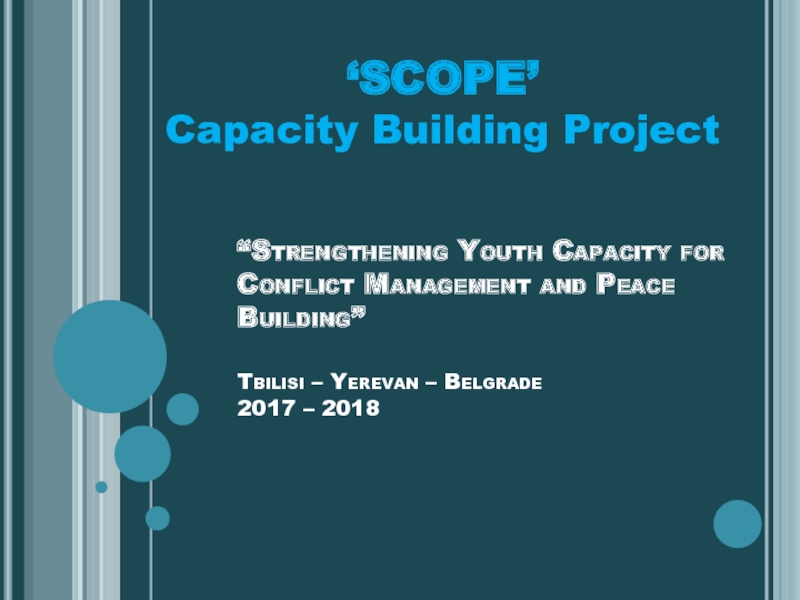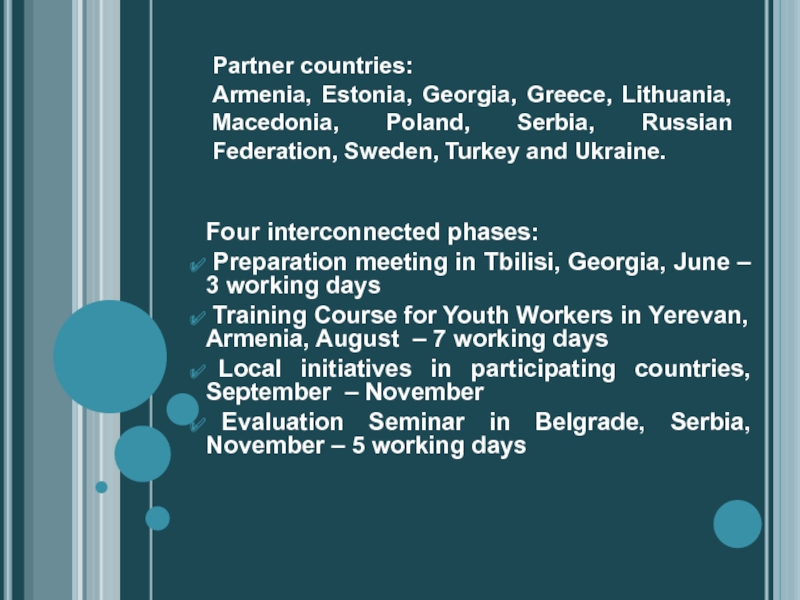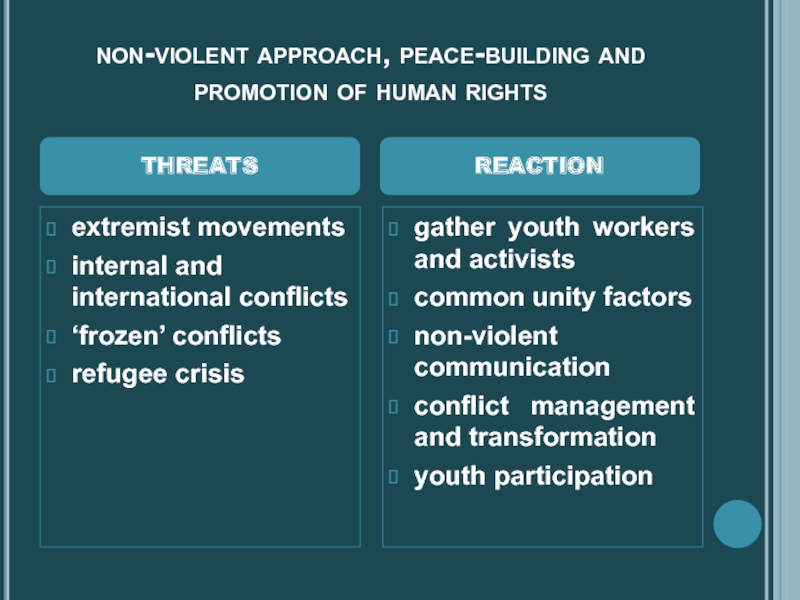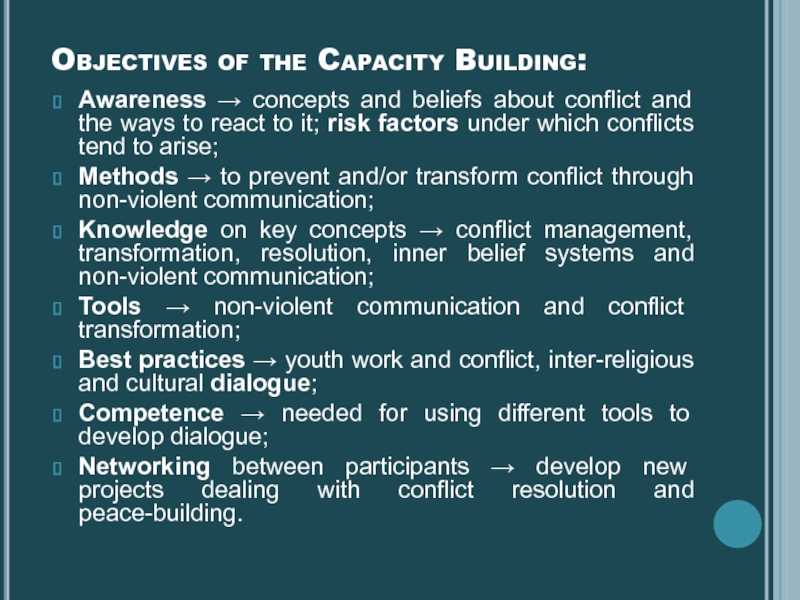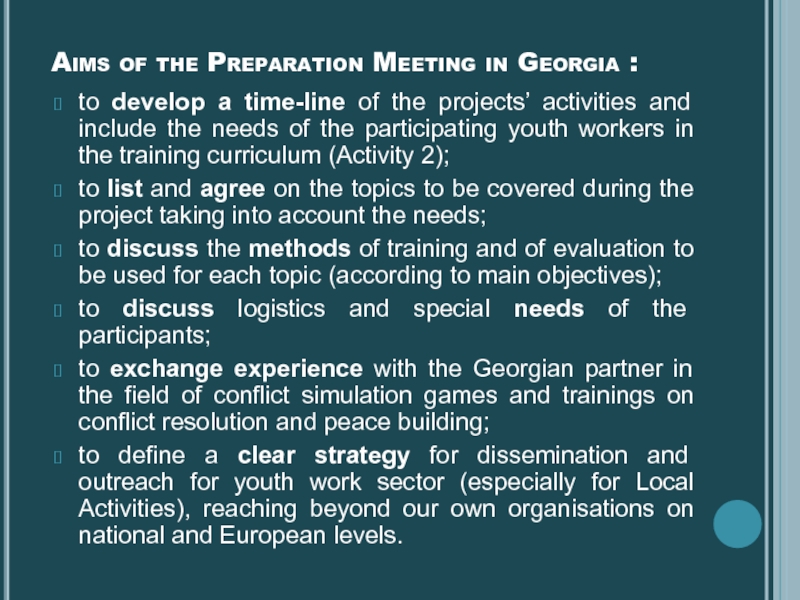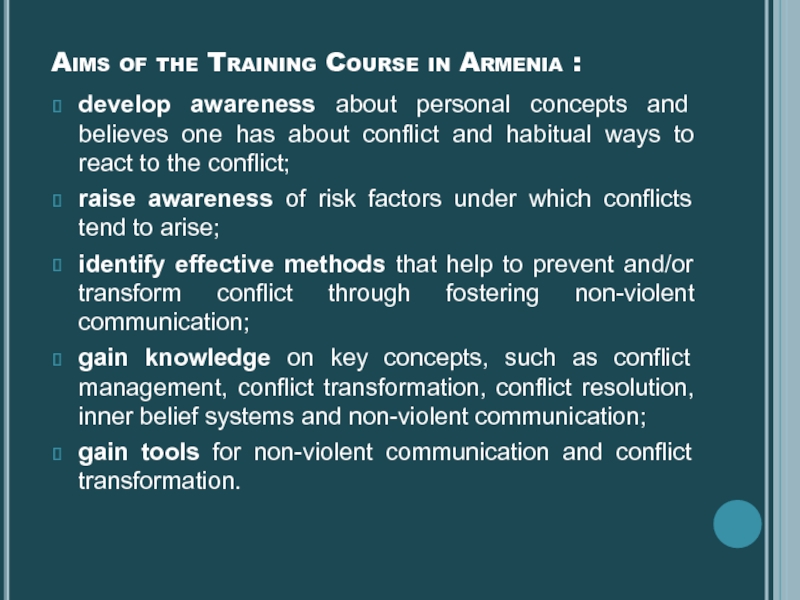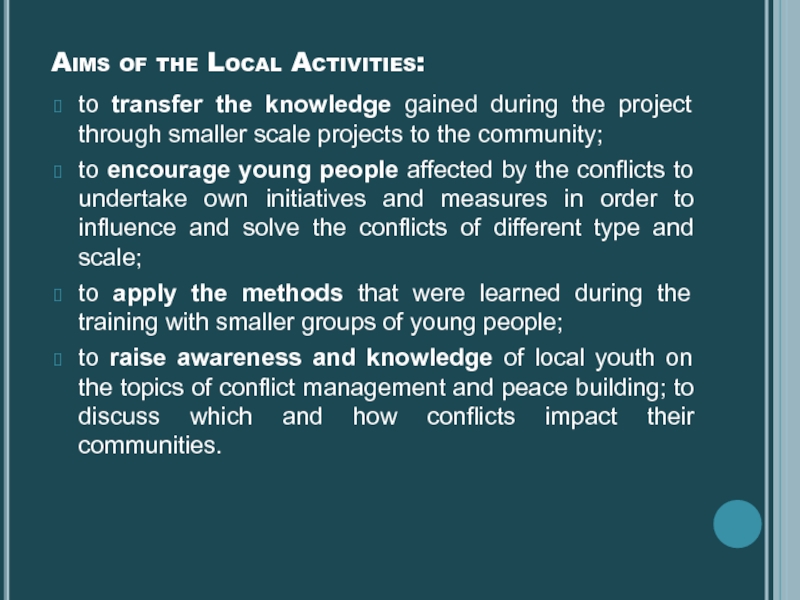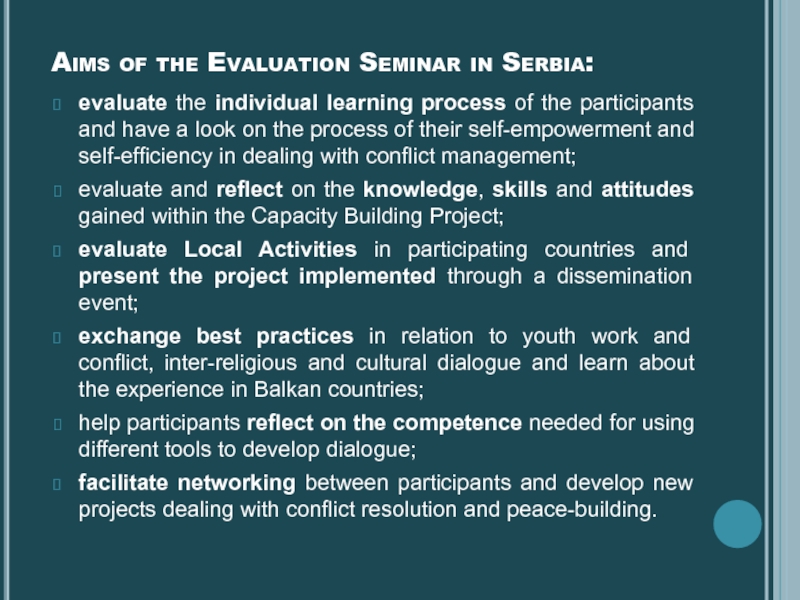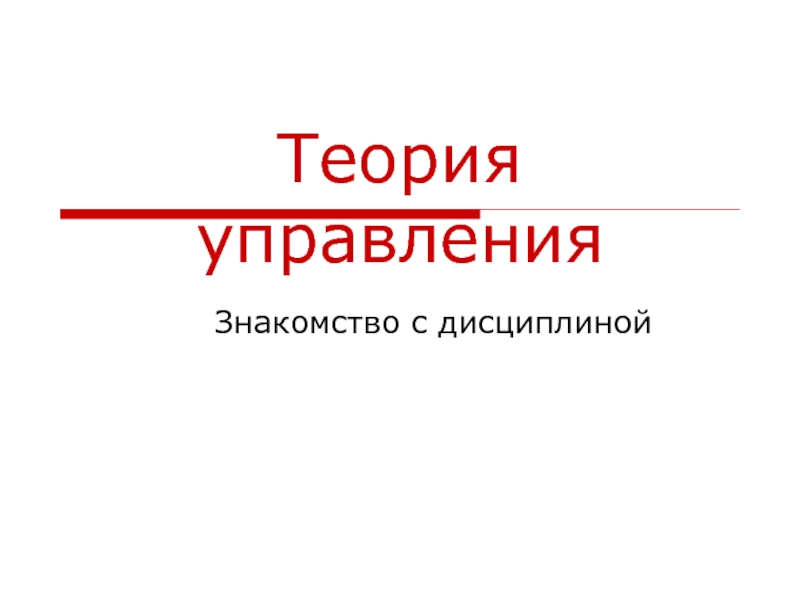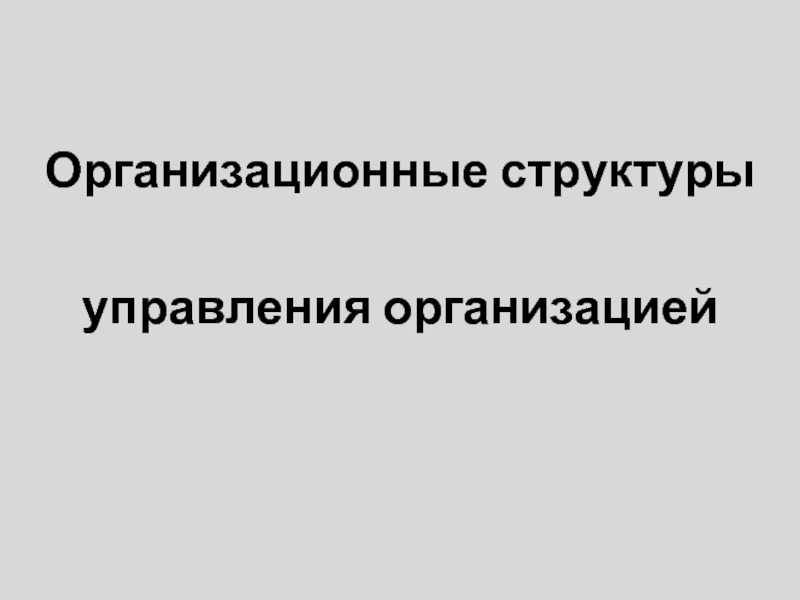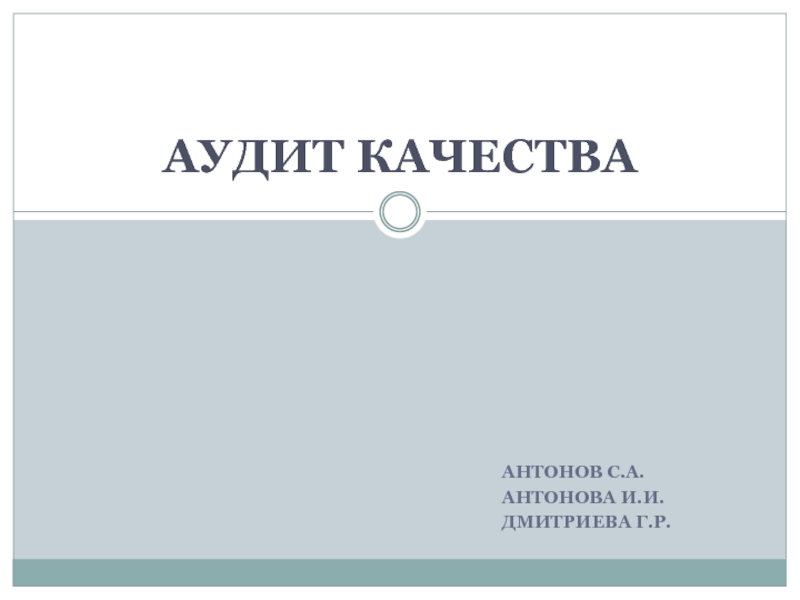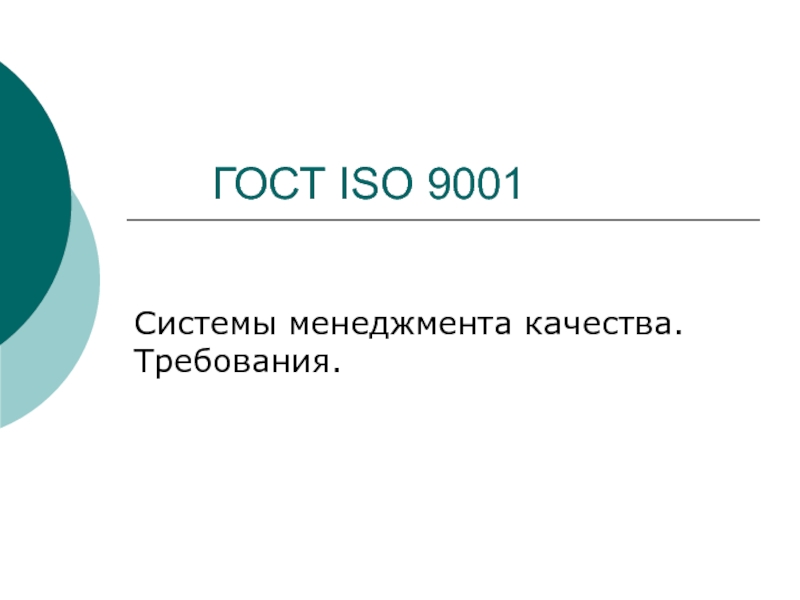‘SCOPE’
Capacity Building Project
- Главная
- Разное
- Дизайн
- Бизнес и предпринимательство
- Аналитика
- Образование
- Развлечения
- Красота и здоровье
- Финансы
- Государство
- Путешествия
- Спорт
- Недвижимость
- Армия
- Графика
- Культурология
- Еда и кулинария
- Лингвистика
- Английский язык
- Астрономия
- Алгебра
- Биология
- География
- Детские презентации
- Информатика
- История
- Литература
- Маркетинг
- Математика
- Медицина
- Менеджмент
- Музыка
- МХК
- Немецкий язык
- ОБЖ
- Обществознание
- Окружающий мир
- Педагогика
- Русский язык
- Технология
- Физика
- Философия
- Химия
- Шаблоны, картинки для презентаций
- Экология
- Экономика
- Юриспруденция
Strengthening Youth Capacity for Conflict Management and Peace Building презентация
Содержание
- 1. Strengthening Youth Capacity for Conflict Management and Peace Building
- 2. Four interconnected phases: Preparation meeting in
- 3. non-violent approach, peace-building and promotion of human
- 4. Objectives of the Capacity Building: Awareness →
- 5. Aims of the Preparation Meeting in Georgia
- 6. Aims of the Training Course in Armenia
- 7. Aims of the Local Activities: to transfer
- 8. Aims of the Evaluation Seminar in Serbia:
Слайд 1“Strengthening Youth Capacity for Conflict Management and Peace Building” Tbilisi – Yerevan
Слайд 2Four interconnected phases:
Preparation meeting in Tbilisi, Georgia, June – 3
Training Course for Youth Workers in Yerevan, Armenia, August – 7 working days
Local initiatives in participating countries, September – November
Evaluation Seminar in Belgrade, Serbia, November – 5 working days
Partner countries:
Armenia, Estonia, Georgia, Greece, Lithuania, Macedonia, Poland, Serbia, Russian Federation, Sweden, Turkey and Ukraine.
Слайд 3non-violent approach, peace-building and promotion of human rights
extremist movements
internal and
‘frozen’ conflicts
refugee crisis
gather youth workers and activists
common unity factors
non-violent communication
conflict management and transformation
youth participation
THREATS
REACTION
Слайд 4Objectives of the Capacity Building:
Awareness → concepts and beliefs about conflict
Methods → to prevent and/or transform conflict through non-violent communication;
Knowledge on key concepts → conflict management, transformation, resolution, inner belief systems and non-violent communication;
Tools → non-violent communication and conflict transformation;
Best practices → youth work and conflict, inter-religious and cultural dialogue;
Competence → needed for using different tools to develop dialogue;
Networking between participants → develop new projects dealing with conflict resolution and peace-building.
Слайд 5Aims of the Preparation Meeting in Georgia :
to develop a
to list and agree on the topics to be covered during the project taking into account the needs;
to discuss the methods of training and of evaluation to be used for each topic (according to main objectives);
to discuss logistics and special needs of the participants;
to exchange experience with the Georgian partner in the field of conflict simulation games and trainings on conflict resolution and peace building;
to define a clear strategy for dissemination and outreach for youth work sector (especially for Local Activities), reaching beyond our own organisations on national and European levels.
Слайд 6Aims of the Training Course in Armenia :
develop awareness about
raise awareness of risk factors under which conflicts tend to arise;
identify effective methods that help to prevent and/or transform conflict through fostering non-violent communication;
gain knowledge on key concepts, such as conflict management, conflict transformation, conflict resolution, inner belief systems and non-violent communication;
gain tools for non-violent communication and conflict transformation.
Слайд 7Aims of the Local Activities:
to transfer the knowledge gained during the
to encourage young people affected by the conflicts to undertake own initiatives and measures in order to influence and solve the conflicts of different type and scale;
to apply the methods that were learned during the training with smaller groups of young people;
to raise awareness and knowledge of local youth on the topics of conflict management and peace building; to discuss which and how conflicts impact their communities.
Слайд 8Aims of the Evaluation Seminar in Serbia:
evaluate the individual learning
evaluate and reflect on the knowledge, skills and attitudes gained within the Capacity Building Project;
evaluate Local Activities in participating countries and present the project implemented through a dissemination event;
exchange best practices in relation to youth work and conflict, inter-religious and cultural dialogue and learn about the experience in Balkan countries;
help participants reflect on the competence needed for using different tools to develop dialogue;
facilitate networking between participants and develop new projects dealing with conflict resolution and peace-building.
